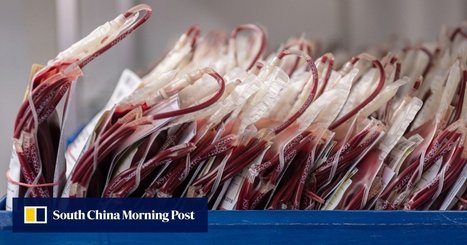It’s not yet clear whether the antibody levels produced will lead to immunity to the virus. To prove that, the companies will need to conduct large studies. An experimental Covid-19 vaccine being developed by the drug giant Pfizer and the biotech firm BioNTech spurred immune responses in healthy patients, but also caused fever and other side effects, especially at higher doses. The first clinical data on the vaccine were disclosed Wednesday in a paper released on medRXiv, a preprint server, meaning it has not yet been peer-reviewed or published in a journal. “We still have a ways to go and we’re testing other candidates as well,” said Philip Dormitzer, the chief scientific officer for viral vaccines at Pfizer’s research laboratories. “However, what we can say at this point is there is a viable candidate based on immunogenicity and early tolerability safety data.”
The study randomly assigned 45 patients to get one of three doses of the vaccine or placebo. Twelve received a 10-microgram dose, 12 a 30-microgram dose, 12 a 100-microgram dose, and nine a placebo. The 100-microgram dose caused fevers in half of patients; a second dose was not given at that level. Following a second injection three weeks later of the other doses, 8.3% of the participants in the 10-microgram group and 75% of those in the 30-microgram group developed fevers. More than 50% of the patients who received one of those doses reported some kind of adverse event, including fever and sleep disturbances. None of these side effects was deemed serious, meaning they did not result in hospitalization or disability and were not life-threatening.
The vaccine generated antibodies against SARS-CoV-2, the virus that causes Covid-19, and some of these antibodies were neutralizing, meaning that they appear to prevent the virus from functioning. Levels of neutralizing antibodies were 1.8 to 2.8 times the level of that in the recovered patients. It’s not certain that higher antibody levels will lead to immunity to the virus. To prove that, Pfizer will need to conduct large studies that aim to prove that people who have received the vaccine are at least 50% less likely to become infected. Those studies are expected to begin this summer, mostly in the United States. Pfizer and BioNTech are testing four different versions of the vaccine, but only one will advance to larger studies....
Preprint available at medRxiv (July 1, 2020):
https://doi.org/10.1101/2020.06.30.20142570



 Your new post is loading...
Your new post is loading...












Buy OxyNorm liquid Online
ACXION FENTERMINA
$180.00 $150.00Add to cartacxion-fentermina 30mg
Alli Orlistat 60 mg
$200.00 $150.00Add to cartbuy Adderall 20 mg tablet
$200.00 $180.00Add to cartBuy arimidex for sale
buy Concerta online
buy demerol injection online
Buy Dilaudid Online
Buy Duromine online
Buy Ecstasy Online
buy Elite Assault Air Bike
$1,100.00Add to cartBuy Fentanyl Powder Online
buy Klonopin Clonazepam online
Buy Norco 10 mg-325 mg tablet
buy norco Norco 10 325 online